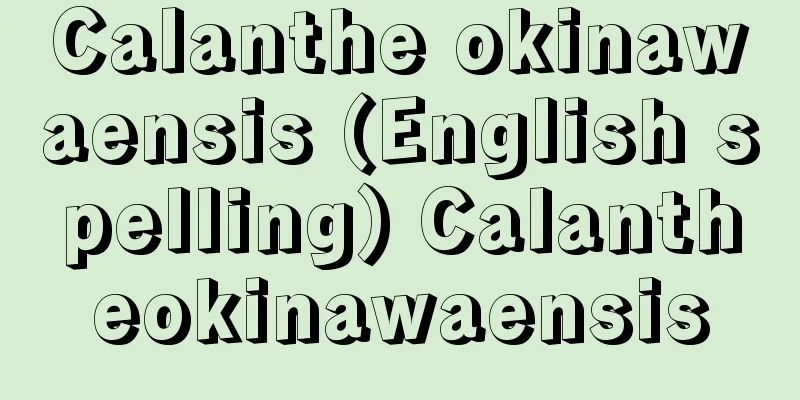Clifford Geertz

|
A leading American anthropologist. He obtained his doctorate from Harvard University for his anthropological research on Javanese religion, and served as professor of anthropology at the University of Chicago and professor of social science at the Institute for Advanced Study in Princeton, where he is now a professor emeritus. He rejects sociological generalizations and instead focuses on meticulously describing the concrete actions experienced by people in the target culture, structuring them into texts, and using them to portray the meaning of the culture that people live. This interpretation of culture, from the concrete to the symbolic dimension, is called interpretive anthropology, and has formed a major trend in anthropology. Furthermore, interpretive anthropology has been a major force in promoting the philosophical shift in the humanities and social sciences known as the linguistic turn, and in that sense Geertz's research can be said to be the practice of anthropology as a human science. In his debut work, The Religion of Java (1960), he depicted the complex value system of Javanese society through an analysis of the worldview and social behavior of three forms of belief, and in Peddlers and Princes (1963), he described the economies of small cities in Java and Bali in ethnographic terms, including the issue of modernization. In Agricultural Involution (1963), he discussed ecological changes in population and production in colonial Java, taking into account cultural factors rather than being limited by economic or demographic arguments, which sparked great controversy. In the mid-1960s, he turned his attention to Morocco, another Islamic society, and wrote Islam Observed (1968), which delved deeply into religious, social, and economic issues by comparing it with Indonesia. He never lost interest in Indonesia, and in Negara: The Theatre State in Nineteenth-century Bali (1980) he addressed the issue of kingdoms in Southeast Asia head-on, demonstrating the possibility of deciphering history from an anthropological perspective. His concept of a "theatre state," which departed from the traditional view of the state that was biased toward political science and saw the kingdom as a device for involving people in the grand rituals performed by a royal family carrying mythology, provoked great controversy, just like "internal revolution." Furthermore, in addition to area studies, in The Interpretation of Cultures (1973, translated into Japanese as "Hermeneutics of Culture") he discusses issues related to field research, description, and other issues related to the human sciences in general from a perspective based on phenomenology and hermeneutics. He continued to write in this way, publishing periodically such works as Local Knowledge: Further Essays in Interpretive Anthropology (1983), Works and Lives: The Anthropologist as Author (1988), After the Fact: Two Countries, Four Decades, One Anthropologist (1995), and Available Light: Anthropological Reflections on Philosophical Topics (2000). Among these, the essay "Anti-Anti-Relativism" in Light at Hand was originally presented as a special lecture at the American Anthropological Association and is considered one of Geertz's most important essays. Looking at the difficult situation surrounding culture in today's international society, where relativism, the pillar of cultural anthropology, has in fact ended up justifying various discriminations, Geertz discusses relativism itself and considers what the attitude should be in order to tackle this situation. Even in these numerous essays, Geertz's interest in real-life cases, which was his starting point as an anthropologist, has not changed, and he has always maintained an attitude of returning to reality. [Yasuyuki Nagabuchi November 19, 2018] "Cultural Hermeneutics 1 and 2" translated by Yoshida Teigo et al. (1987, Iwanami Shoten) ▽ "Balinese Kinship Systems" by C. Geertz and H. Geertz, translated by Yoshida Teigo and Kagami Haruya (1989, Misuzu Shobo) ▽ "Negara: Theatrical State in 19th Century Bali" translated by Koizumi Junji (1990, Misuzu Shobo) ▽ "Reading and Writing Culture" translated by Moriizumi Koji (1996, Iwanami Shoten) ▽ "Local Knowledge: Essays on Interpretive Anthropology" translated by Kajiwara Kageaki et al. (1999, Iwanami Shoten) ▽ "Involution: Inward Development" translated by Ikemoto Yukio (2001, NTT Publishing) ▽ "Interpretive Anthropology and Anti-Anti-Relativism" edited and translated by Koizumi Junji (2002, Misuzu Shobo) ▽ "A Light Illuminating Modern Society: An Anthropological Reflection" (translated by Kagami Haruya et al., 2007, Aoki Shoten)" ▽ "Two Islamic Societies: Morocco and Indonesia" (translated by Hayashi Takeshi, Iwanami Shinsho) " ▽ "The Economics of Clifford Geertz: Between Asian Studies and Economic Theory" by Hara Yonosuke (1985, Libroport; revised and retitled Area Economics: The Topology of the Asian Economy, 1993, NTT Publishing)" ▽ "After the Fact: Two Countries, Four Decades, One Anthropologist" (1995, Harvard University Press, Cambridge, Mass.) [Reference items] | |Source: Shogakukan Encyclopedia Nipponica About Encyclopedia Nipponica Information | Legend |
|
アメリカを代表する人類学者。ジャワ宗教の人類学的研究によってハーバード大学の博士号を取得し、シカゴ大学人類学教授、プリンストン高等研究所社会科学部門教授を歴任し、同名誉教授となる。社会学的一般論を退け、対象とする文化における人々が経験している具体的行為を綿密に記述し、テキストとして構成していくことによって、人々が営む文化の意味を描き出すことが彼の姿勢である。この具体の次元から象徴の次元までに至る文化の解釈は解釈人類学とよばれ、人類学における大きな潮流を形成した。また、解釈人類学は言語論的転回とよばれる人文社会諸科学における思想転換を推進する大きな力となり、その意味でギアツの研究は人間科学としての人類学の実践であるといえる。 処女作の『ジャワの宗教』The Religion of Java(1960)では、三つの信仰形態の世界観と社会行為の分析を通じて、ジャワ社会の複雑な価値体系を描き出し、『行商人と王子』Peddlers and Princes(1963)では、ジャワとバリの小都市の経済を、近代化の問題も含めて民族誌学的に記述した。また『農業の内旋』Agricultural Involution(1963。邦訳『インボリューション』)では、植民地時代のジャワにおける人口と生産をめぐる生態学的な変化を経済主義や人口学的議論にとらわれず文化的要素を考慮しながら論じ、大きな論争を巻き起こした。1960年代なかばから同じイスラム社会であるモロッコに関心を向け、インドネシアとの比較から深く宗教、社会、経済の問題に迫り、『イスラムを観る』Islam Observed(1968。邦訳『二つのイスラーム社会――モロッコとインドネシア』)を著した。インドネシアへの関心も失うことはなく、『ヌガラ――19世紀バリの劇場国家』Negara : The Theatre State in Nineteenth-century Bali(1980)では東南アジアにおける王国の問題を正面から取り上げ、人類学的な歴史の解読の可能性を示した。政治学的な側面に偏っていた従来の国家観を離れて、神話を背負った王家の営む壮大な儀礼に人々を巻き込んでいく装置として王国をとらえた「劇場国家」という概念は、「内旋」と同じく大きな論争をよんだ。 さらに、地域研究にとどまらず『文化の解釈』The Interpretation of Cultures(1973。邦訳『文化の解釈学』)では、実地調査、記述の問題、その他人間科学一般にかかわる諸問題を、現象学や解釈学をふまえた見地から論じている。こうした論述活動はその後も続き、『ローカル・ノレッジ――解釈人類学論集』Local Knowledge : Further Essays in Interpretive Anthropology(1983)、『作品と生――著者としての人類学者』Works and Lives : The Anthropologist as Author(1988。邦訳『文化の読み方/書き方』)、『事実の後を――二つの国、40年の歳月、一人の人類学者』After the Fact : Two Countries, Four Decades, One Anthropologist(1995)、『手もとにある光――哲学的問題に関する人類学的研究』Available Light : Anthropological Reflections on Philosophical Topics(2000。邦訳『現代社会を照らす光――人類学的な省察』)と定期的に著作を刊行していった。なかでも『手もとにある光』に収められた論文「反=反相対主義」は、もともとアメリカ人類学会特別講演として発表され、ギアツのもっとも重要な論考の一つにあげられている。文化人類学の支柱であった相対主義が逆にさまざまな差別を正当化してしまう現在の国際社会における文化をめぐる困難な状況を見据え、それに取り組む姿勢とは何かを相対主義そのものを論じながら考察している。こうした数多くの論考においても、人類学者としての出発点にあった現実の事例に対する関心は変わることはなく、現実に立ち戻る姿勢をつねに堅持していた。 [永渕康之 2018年11月19日] 『吉田禎吾他訳『文化の解釈学1、2』(1987・岩波書店)』▽『C・ギアツ、H・ギアツ著、吉田禎吾・鏡味治也訳『バリの親族体系』(1989・みすず書房)』▽『小泉潤二訳『ヌガラ――19世紀バリの劇場国家』(1990・みすず書房)』▽『森泉弘次訳『文化の読み方/書き方』(1996・岩波書店)』▽『梶原景昭他訳『ローカル・ノレッジ――解釈人類学論集』(1999・岩波書店)』▽『池本幸生訳『インボリューション――内に向かう発展』(2001・NTT出版)』▽『小泉潤二編訳『解釈人類学と反=反相対主義』(2002・みすず書房)』▽『鏡味治也他訳『現代社会を照らす光――人類学的な省察』(2007・青木書店)』▽『林武訳『二つのイスラーム社会――モロッコとインドネシア』(岩波新書)』▽『原洋之介著『クリフォード・ギアツの経済学――アジア研究と経済理論の間で』(1985・リブロポート/改題改訂版『エリア・エコノミックス――アジア経済のトポロジー』1993・NTT出版)』▽『After the Fact : Two Countries, Four Decades, One Anthropologist(1995, Harvard University Press, Cambridge, Mass.)』 [参照項目] | |出典 小学館 日本大百科全書(ニッポニカ)日本大百科全書(ニッポニカ)について 情報 | 凡例 |
>>: Atmospheric pressure - air pressure
Recommend
Monetary Union (English spelling)
In principle, currency and monetary systems have ...
Architect - kenchikushi
An architect is an engineer who designs buildings...
Weberian apparatus
The hearing organ found in fish of the order Cypri...
Fish Peeping - Fish Peeping
...The first person to use the word aquarium was ...
Handicraft - Craft
The provision of labor that depends on the work o...
Buying price - Buying price
〘Noun〙① The most favorable price or timing for buy...
Ichikawa [City] - Ichikawa
A city in northwestern Chiba Prefecture. It was in...
Aiba River
…In 1694 (Genroku 7), the number of towns was 41 ...
Kristiania
...The city then rapidly declined due to the adva...
Guangara - Guangara
...The intermediate region showed a cultural adva...
Ten Thousand Songs Tower - Ichimansettou
...The dimensions shown here are those of the cen...
County city
…In England, although there have been changes in ...
Cribellum
…In addition to these projections, some have smal...
Petition for the Establishment of a Popularly Elected Assembly - Minsen Giinsetsuri Tsukenpaku
A movement to establish a national parliament in t...
Tobishima Island
A small island in the Sea of Japan, about 40km n...









